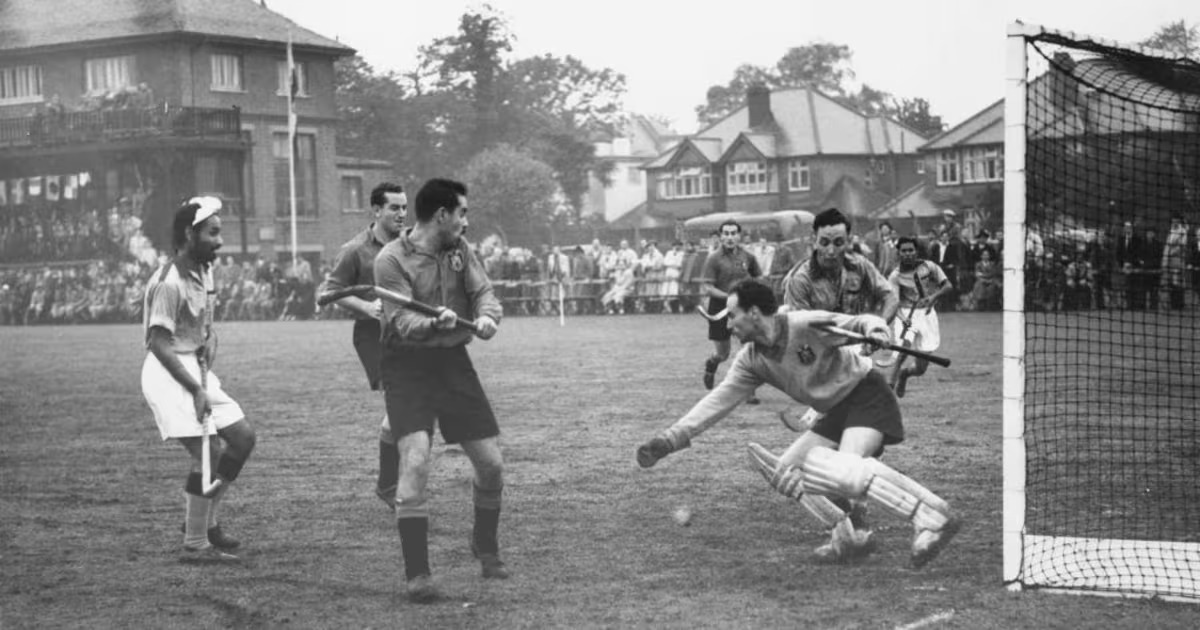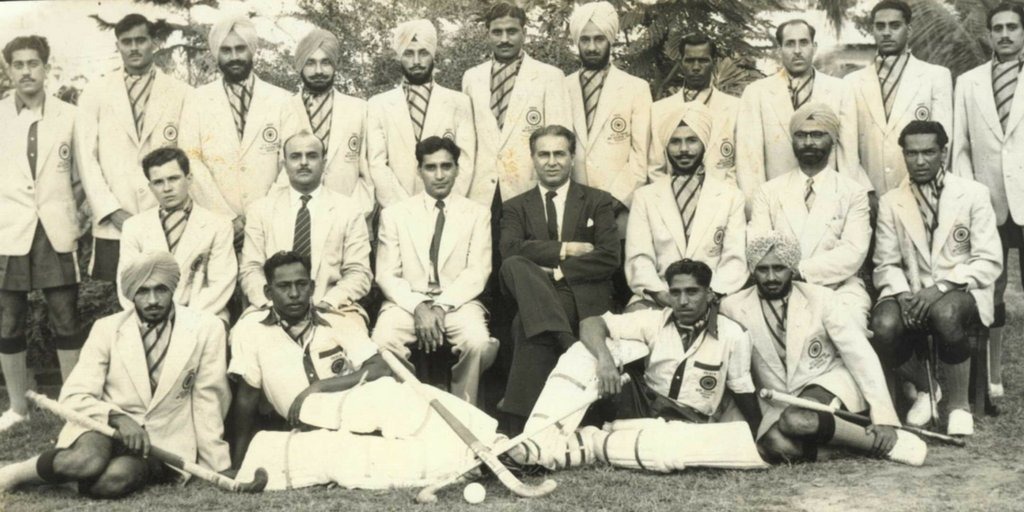
While India attained political freedom on August 15, 1947, it did so on the sports field a year later during the 1948 London Olympics. For newly independent India, the London Olympic of 1948 were more than a mere sporting event. The event offered an opportunity for assertion, and was the stage for a young nation to claim for itself a place in the world parliament of successful sporting nations. It was also a platform for an infant nation-state to compete with its former master, and give vent to years of frustration and discontent.
India’s hockey team satisfied this national yearning, in the process winning for themselves a fourth straight Olympic gold, having already won top honours at Amsterdam in 1928, Los Angeles in 1932 and Berlin in 1936. The golden journey did not stop in 1948, but continued until 1964, with a brief silver interlude in 1960 – when India had to cede top spot to arch-rivals Pakistan.
When India’s hockey team won gold at the London Olympic hockey stadium in 1948, defeating Great Britain 4–0 in the final, much more than an Olympic victory was scripted. It was a newly independent nation’s declaration against the forces of colonialism, and retribution for humiliation meted out by the British for almost 200 years. Finally, it was a statement to the world about the significance of ‘sport’ in an era of de-colonisation.
Also Read: Paris Olympics to England tour, and beyond – RevSportz going from strength to strength
Hockey, the victory demonstrated, held the promise of being the new opiate of the masses. Without exaggeration, it was a mirror in which communities were beginning to see themselves. It was at once a source of exhilaration, pride and national bonding. The sport, for many in the country, offered a substitute to religion as a source of emotive attachment and spiritual passion. And for many, since it was among the earliest of memorable post-independence experiences, it infiltrated memory, shaped enthusiasms and served fantasies. Though claims of hockey being the ‘national’ sport of the country originated as far back as the turn of the century and gathered momentum after the wins in Amsterdam, Los Angeles and Berlin, it was not until London that its supremacy was assured.

Also, at the time when India’s hockey team was contesting for honours in London, the nation’s borders were set alight by the first war with neighbours Pakistan – the ‘unfinished agenda’ of Partition which was to lead to further conflicts in 1965 and 1971, and continual tension since.
Compared to the Olympics of 1928, 1932 and 1936, London 1948 offered a fundamentally different challenge for Indian hockey. More so, because the players, for the first time, weren’t representing British India but were playing for their motherland. This was the first time the Indians were playing for the new tricolour and against the British, under whose imperial flag they had participated in previous Games.
The significance of this transformation was best brought out by the legendary Dhyan Chand. Writing in his autobiography, he declared: ‘I envy the 1948 Indian Olympic team to whom fell that honour (of meeting and defeating the British on the Olympic stage). How I wish I had at least been present to witness the historic occasion. But, like most of you, I was fated to be thousands of miles away at home listening to the radio and reading press reports.’
For more such stories, follow RevSportz




